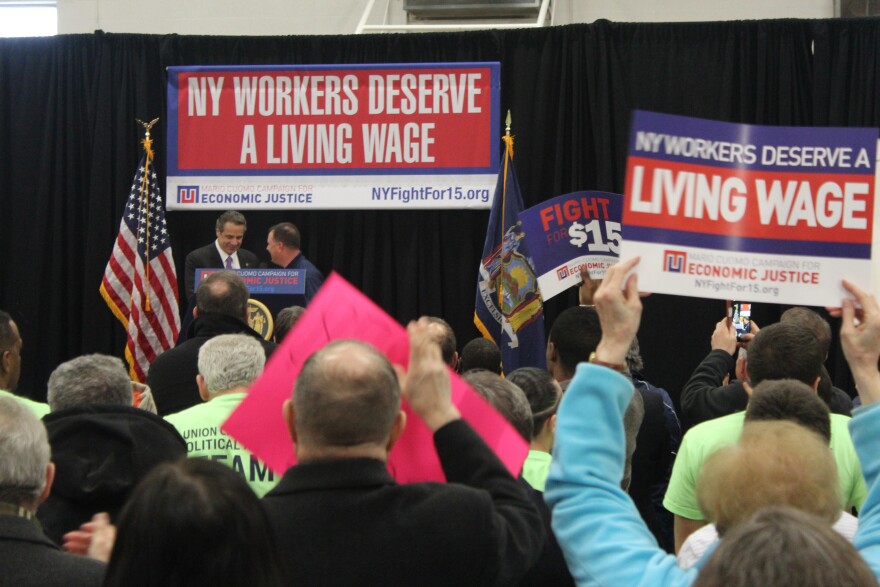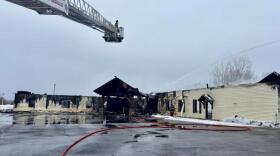Business leaders, particularly those in upstate New York, say the recently concluded 2016 legislative session was the worst for small businesses in quite some time.
Business owners say that a session that saw the minimum wage increase to eventually $15 in New York City and $12.50 upstate, along with a phased-in partially paid family leave, will be costly to smaller employers who operate on the edge in a shaky economy.
Heather Briccetti, president of the Business Council of New York State, said there’s a long “list of things that could have been done that didn’t get done” that would have benefited businesses and the upstate economy.
Gov. Andrew Cuomo and the legislature failed to agree to expand ride-sharing services, including Uber and Lyft, beyond New York City. A temporary commission to cut business regulations was formed in April and issued a report in early June, but Briccetti said so far, most of the recommendations have not become law.
“All of this was stonewalled,” she said.
In addition, the Senate and Assembly approved a bill, spurred by the water crisis in Hoosick Falls, which would increase the statute of limitations and give anyone who becomes sick from toxic exposure three years to file a lawsuit after a Superfund site is declared.
Briccetti said she sympathizes with the village residents whose water has been contaminated, but said the bill is poorly constructed and was hastily approved in the final days of the session.
“It seems like a very inartful solution,” Briccetti said.
Many farmers are also upset by the policy shifts made in the past few months. The New York Farm Bureau’s Steve Ammerman said the final straw was when Cuomo decided not to defend the state in a lawsuit by the New York Civil Liberties Union, which, if successful, will allow farmworkers to unionize.
“It’s disheartening and very, very discouraging for our family farmers,” said Ammerman. “They’re just saying, ‘Well, what’s next?’”
The Farm Bureau has gone to court, seeking to intervene in the case and offer a defense. They are awaiting word from state Supreme Court.
The New York Civil Liberties Union’s Donna Lieberman, speaking at a rally at the state Capitol in May, said her group expects success in the case.
“The state’s constitution protects the fundamental right to organize,” said Lieberman. “And we are going to assert that right in court, and we’re going to win.”
A spokesman for Cuomo said “equal rights and equal pay” for farmworkers is not incompatible with the administration’s commitment to “continued growth of the state’s agricultural industry.”
Cuomo’s aides also pointed out many steps that they say made the session a good one for business, including a tax cut that they say will provide relief to nearly a million small businesses, and “record” investments in roads, bridges and public transportation.
But spokesman Rich Azzopardi, in a statement, said the governor makes “no apologies” for trying to lift people out of poverty with a higher minimum wage, and he pointed out that paid family leave will be funded by the workers.
Briccetti agreed that not everything was bad for business. She credited Cuomo and the legislature for continuing to stick to a self-imposed 2 percent state spending cap.
She said holding the line on spending means fewer opportunities to raise taxes.








